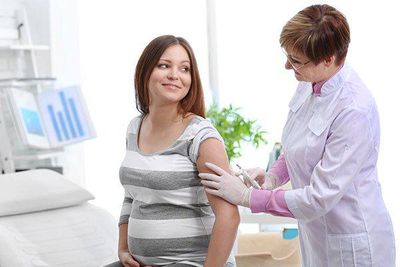August is National Immunization Awareness Month, created to bring attention to the importance of vaccines, arguably one of the top 10 health achievements for disease prevention of the past century.
The creation of the smallpox vaccine developed in the 1790s by country doctor Edward Jenner was the start of reducing mortality rates from formerly deadly diseases. Vaccines work by imitating disease agents, then stimulating your immune system to build defenses against them. More than a dozen serious diseases can be prevented with vaccines.
With children and young adults returning to school shortly, it's time to think about vaccines.
Are their vaccines up to date?
Are yours?
If you think vaccines are just for children, they're not. Throughout our life spans, we need vaccines. They can be invaluable for babies and young children, preteens and teens, pregnant women—and all adults, as well.
You may be worried about the risk of vaccines, but compared to other types of risks, the odds are quite low. For instance, less than one person per 1 million doses of the measles, mumps and rubella vaccine will suffer a serious allergic reaction. Compare that with the risk of dying in a motor vehicle accident (139 per 1 million) or from unintentional poisoning (99 per 1 million) and it's clear to see that the risk is relatively small.
Without the measles, mumps and rubella vaccine, your risk of serious disease increases. Measles can lead to ear infection, pneumonia, seizures, brain damage and death. Mumps can lead to deafness, meningitis, painful swelling of the genital organs and, rarely, sterility. If a woman gets rubella while pregnant, she can have a miscarriage or a baby born with serious birth defects. Those risks are all greater than the very slight risks from getting the vaccine.
And although these diseases are now much less common in the United States than they were before vaccines were available, they could return if people stop getting vaccinated, warns the Centers for Disease Control and Prevention.
If you're conflicted about whether or not to get vaccinated, here are some other important facts to consider:
- Vaccines can prevent the risk of serious diseases common to the United States, such as influenza, pertussis and shingles. These diseases are easily spread.
- Having a chronic health condition (like diabetes, heart or lung disease) can put you at risk for complications if you contract certain diseases (see above). A vaccine is your protection against not only the disease itself, but further problems should you contract it.
- You're not only protecting your own health by getting vaccinated, but you're also protecting others, because most of the vaccine-preventable diseases are contagious, like influenza, meningitis and whopping cough. (And you're also protecting the spread of disease to people who cannot get immunized, like newborns and, in some instances, pregnant women or people with compromised immune systems.)
People who travel overseas may need additional vaccines, depending on where they go. Click here for more information from the CDC.
As an adult, you may be unsure of what vaccines you need. Because recommendations change periodically, it's important to check with your health care provider. Most of the time you need immunizations to protect against the following:
- Influenza (flu)
- Tetanus, diphtheria and pertussis (whopping cough), if you have not previously received a Tdap vaccine
- Shingles for adults 60 and over
- Pneumococcal for adults 65 or older or adults with certain risk factors
- Hepatitis B for adults with diabetes or who are at risk
Some people will also need vaccines to protect against HPV, hepatitis A, meningococcal disease, chickenpox and measles, mumps and rubella.
Click here for the CDC's more detailed list by vaccine and by age.
It's also important to keep in mind that you sometimes need to get immunized against illnesses if you weren't protected as a child. For example, if you were born after 1957 you may need a measles, mumps and rubella vaccine, also known as MMR. Other times, you may need to get boosters because the vaccines can wear off over time. One example is the Td vaccine (tetanus and diphtheria), which needs to be repeated every 10 years.
Vaccines are widely available through doctors' offices, health departments, pharmacies and even some workplaces.


